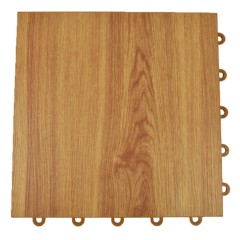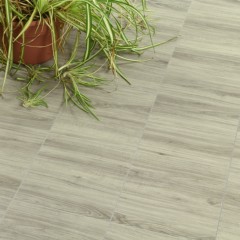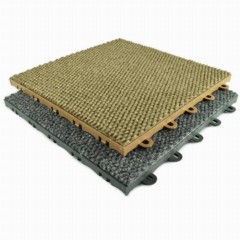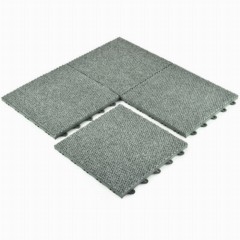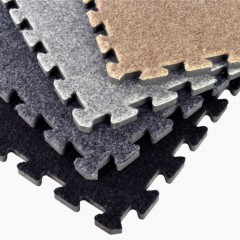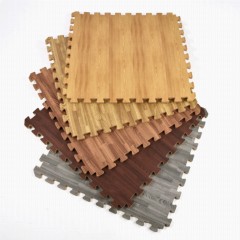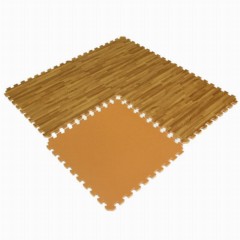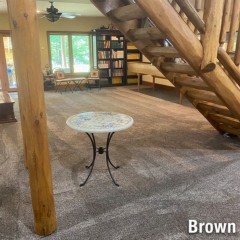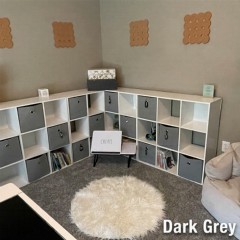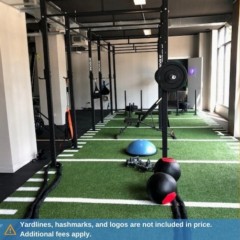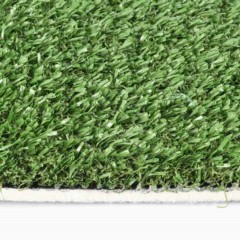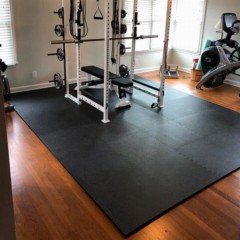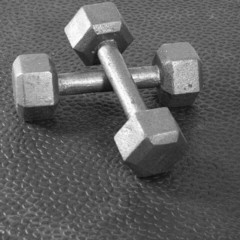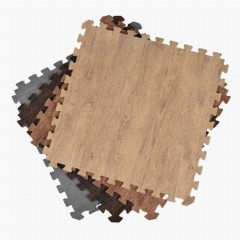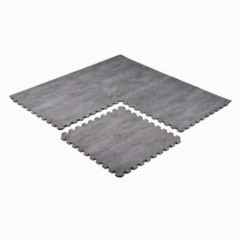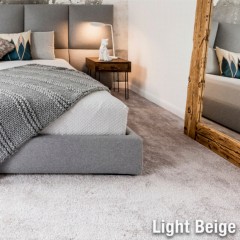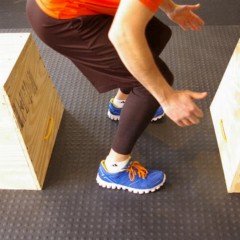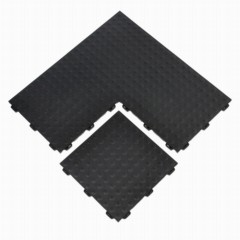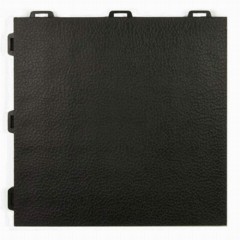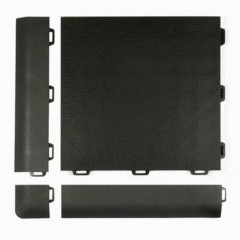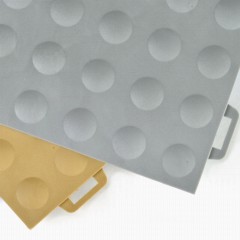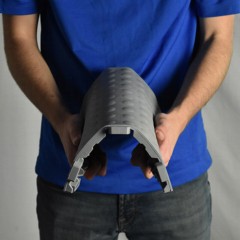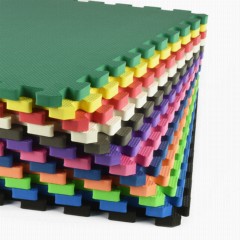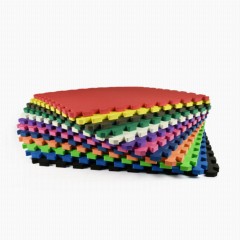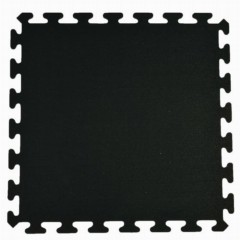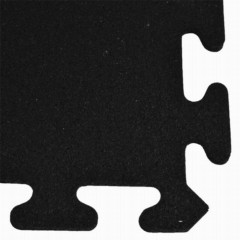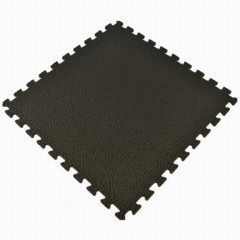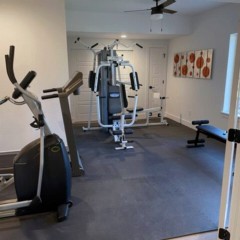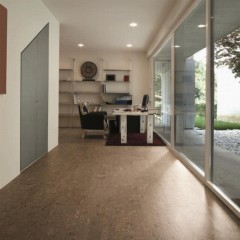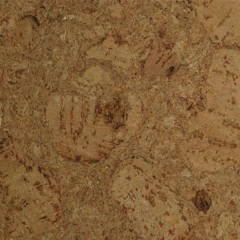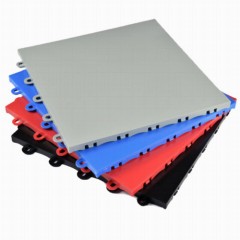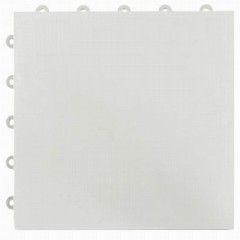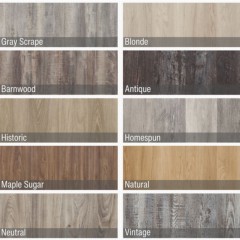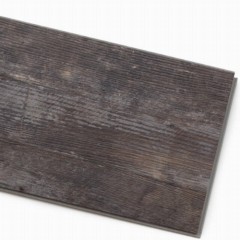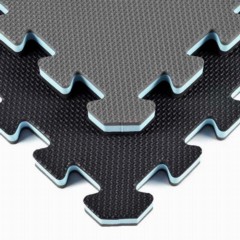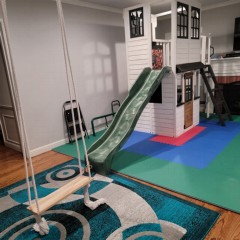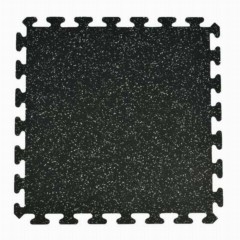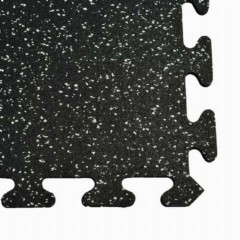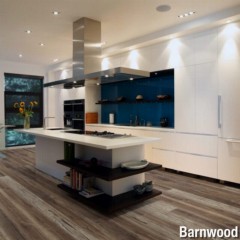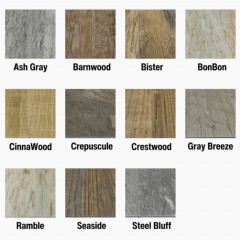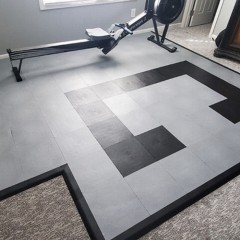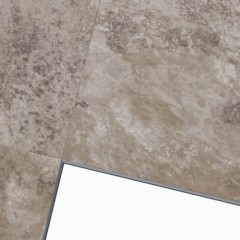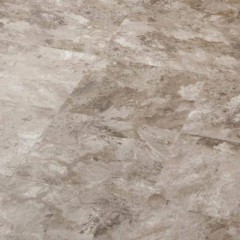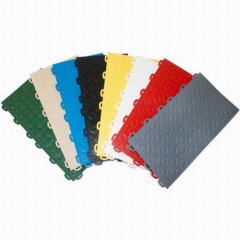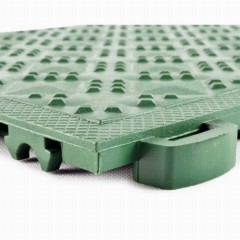
Flooring for Basement Options
Making your finished or unfinished basement living space more enjoyable often starts with upgrading the flooring for your basement. At Greatmats, we have dozens of options that help you find the right level of style, cushioning, and durability, so you can take full advantage of this space.
Best Types of Basement Floors
The best floor for the basement likely involves one of the following options.
- Raised basement flooring tiles
- Flat tiles
- Mats
- Rolled rubber basement flooring
Best Basement Flooring Materials
You can install many types of flooring directly over concrete or with a vapor barrier, based on the materials. The options listed here are alternatives to ceramic or porcelain tiles.
- Rubber: Rubber floor tiles or rolls protect the subfloor for weightlifting in a basement gym and nicely hide imperfections in the subfloor. Most rubber suitable for basements is considered water resistant.
- Foam: An EVA type of foam can go directly over cement, providing insulation from a cold concrete floor while also avoiding water absorption. It delivers cushioning, making it a comfortable option, while offering multiple designs, including a faux wood grain.
- PVC plastic: PVC plastic offers durability similar to rubber and cushioning and is waterproof. We offer PVC tiles that are raised a fraction of an inch over the subfloor, allowing air to flow underneath to encourage water evaporation. These PVC tiles go directly over the subfloor.
- Carpet: By using raised carpet tiles that sit on a plastic base, you can install carpet safely in a damp basement. The raised tiles allow air to flow underneath. We also offer a carpet tile with a foam base that can go directly on concrete.
- Vinyl: Raised vinyl basement flooring tiles are available, as they sit on a plastic base that encourages air to flow underneath the tiles. If you want to use vinyl plank flooring without a raised base, consider installing a vapor barrier first.
Top 5 Recommended Flooring Products for Basements
Here are five of our most popular and highly recommended flooring options for a basement installation.
- Max Tile Raised Floor Tile: This general-purpose flooring is ideal for almost any basement usage with a faux wood grain waterproof vinyl top layer and a raised plastic base layer.
- Modular Square Carpet Tiles: Nearly any basement can make use of these general-purpose carpet tiles, which have durable, yet comfortable, carpet on the top layer and a raised plastic base layer to allow airflow underneath.
- Royal Interlocking Carpet Tile: If you don't need a raised plastic base, these puzzle-edge carpet tiles are water resistant and go directly over any firm subfloor, like concrete. If water is a problem, the foam and carpet tiles can be easily removed to allow them to dry out. They're great for bedrooms, family rooms, or playrooms.
- Premium Foam Kids and Gym Mats: When you want to add a splash of color to comfortable basement flooring, these puzzle-edge tiles are available in more than a dozen colors. They're water resistant, and they can liven up a playroom, bedroom, family room, or work room.
- StayLock Bump Top Tile: This waterproof PVC plastic flooring is made for tough environments, such as in a basement gym, workout room, or exercise area. It's highly durable and has an interlocking installation system that's perfect for a DIY layout.
Best Basement Floor Tiles & Mats for Possible Wet Conditions
If you have issues with regular dampness, you need flooring that can remain unaffected by water, whether it comes from a flooded basement or from water seeping through the floor.
Raised floor tiles are the best choice for wet conditions, as they include a firm plastic base that sits on small feet to lift the underside of the tile a fraction of an inch off the floor. The air then can flow underneath, encouraging evaporation.
Best Floor for Basement Gyms
To create a safe and comfortable gym floor in your basement at home, consider how you will use the space to find the
best basement gym flooring.
- Rolls: Rolls of rubber protect the subfloor from dropped weights and provide a sure footing while resisting water. They cover a large space quickly.
- Interlocking Floor Tiles: Foam and PVC plastic interlocking tiles provide cushioning and anti-fatigue properties for athletes' joints, while rubber interlocking tiles offer significant durability and subfloor protection.
- Mats: Rubber mats are ideal to place over a small section of the floor, providing extra protection against dropped weights or heavy exercise machines.
Basement Flooring Q&A
What is the best basement flooring over concrete?
Because of the possibility of moisture seepage, select a closed-cell EVA type of foam to deliver protection from damp conditions for the
basement flooring over the concrete foundation. With this design, it will not absorb liquids from spills or dampness seeping through the foundation. Rubber is another excellent choice to guard against dropping weights. The cushioning in foam flooring can reduce injuries if a child falls. We have options with an ASTM fall height rating for safety. Just contact us to learn more about the fall criteria.
Can you put carpet in a basement?
To
install carpet in a basement, stick with interlocking tiles that simplify the installation. We offer carpet tiles with a raised plastic base to help with evaporation in a damp environment.
Why would you need basement tiles with a vapor barrier?
Installing a vapor barrier protects the flooring you've installed from moisture seeping through the concrete foundation. Some flooring planks, like hardwood or vinyl, may have a vapor barrier attached to the underside. Even better, consider raised tiles that have a built-in vapor barrier inside the plastic, allowing air to flow underneath.
What is a raised or floating floor?
A
raised floor system uses tiny legs to raise the underside of the floor tiles a fraction of an inch over the subfloor, almost like it's floating. This ensures that any moisture on the subfloor can evaporate with airflow underneath the raised tiles.
What are the best interlocking basement floor tiles for family rooms?
Selecting the
best interlocking tiles for a basement floor depends on the plans you have for the space. If you prefer the look and comfort of carpet, we offer raised carpet floor tiles. Foam tile has cushioning while delivering multiple stylistic choices. For a faux wood grain pattern, consider vinyl basement flooring tiles.
277 reviews
Shop$798 /Tile247 reviews
Shop$10413 /Carton2 reviews
Shop$543 /sqft5 reviews
Shop $9669 /Carton
$9669 /Carton2 reviews
Shop$635 /Tile960 reviews
Shop$635 /Tile70 reviews
Shop$1540 /Tile2 reviews
Shop




